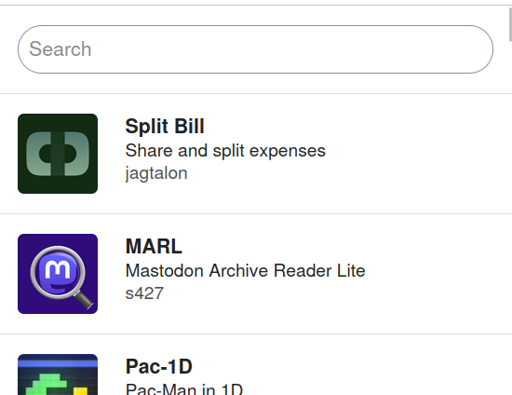[…]
Joined by XMPP-messengers Cheogram and Monocles, and supported by many contributing experts in the background, we are playfully addressing the no-billionaire-platforms challenge with webxdc, a container format and API for “chat-shared web apps”. Technically, webxdc apps are network-sandboxed HTML5 apps and instead of the HTTP protocol they use Peer-to-Peer send/receive APIs implemented by webxdc-capable messengers, rebasing relations between developers and users by saying
-
Bye Bye to surveillance capitalism: Users have both the code and the data of their web apps in their hands and benefit from end-to-end encrypted messaging not only during regular chat messaging but also during their private web app usage.
-
Bye Bye to user policing (logins, passwords, OAUTH, TOS and privacy policies etc.): Web app developers never obtain or touch any user data or user identities, and can have peace of mind of not being responsible for any data, and not having to program identity management and social discovery UIs. Messengers already provide it through arranging chat groups or rooms.
-
Bye Bye to depending on a corp or org that enshittifies: Messengers, as decentralized runners of webxdc apps in chat groups, can not hold web app developers, their users or data hostage. Consult Cory Doctorow’s “Ulysses Pact” for why this is a good idea.
This all sounds too good to be true, right? But what if another reality is possible by just stretching out our hands and grabbing it?
[…]



This post is about private messaging, not social media.
The statements about usability and monetization hold true: if the free platform is harder to use, or it breaks business models that attract users then it will fail.